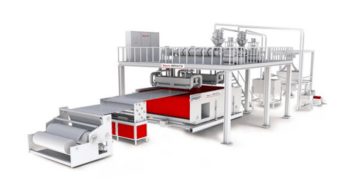As the world continues to grapple with the challenges of climate change and rising energy costs, more homeowners are turning to solar power as a sustainable and cost-effective solution. The decision to invest in a home solar system is not only an environmentally conscious choice but also a strategic financial move. However, simply installing solar panels is just the beginning; to truly maximize the benefits of your home solar system, you need to understand how to harness its full potential. In this article, we will explore practical and innovative ways to optimize your home’s solar power generation, storage, and usage, ultimately helping you save money while reducing your carbon footprint.
With technology advancements in the field of renewable energy, homeowners now have unprecedented opportunities to take control of their energy consumption and even generate revenue from their excess power production. From smart energy management systems to creative storage solutions and incentive programs, there are numerous strategies that can help you make the most out of your investment in solar energy.
Whether you’re considering going solar or already have a system in place, this comprehensive guide will provide valuable insights into unlocking the maximum savings potential from your home’s solar setup. Join us as we delve into the exciting world of home solar systems and discover how you can revolutionize your approach to energy efficiency and financial sustainability.
Understanding your home solar system
Understanding your home solar system is key to maximizing its potential and reaping the full benefits of renewable energy. One important aspect to grasp is the concept of net metering, which allows you to sell excess solar energy back to the grid, helping you earn credits on your electricity bill. Additionally, being aware of your local climate patterns and sunlight exposure can help optimize the positioning and angle of your solar panels for maximum efficiency.
Another crucial element in understanding your home solar system is comprehending its maintenance requirements. Regular cleaning and inspection of panels, as well as monitoring overall system performance, are vital to ensure optimal energy production. Moreover, familiarizing yourself with any available government incentives or rebates related to solar energy can further enhance the financial returns from your investment while contributing to a more sustainable future. Understanding these nuances will empower homeowners to take full advantage of their home solar systems, making a positive impact on both the environment and their pockets.
Maximizing energy production
One often overlooked strategy for maximizing energy production from a home solar system is to regularly clean and maintain the solar panels. Dust, dirt, and debris can accumulate on the panels, reducing their efficiency and inhibiting sunlight absorption. By keeping the panels clean and well-maintained, homeowners can ensure optimal energy production and long-term savings.
Additionally, investing in a quality solar tracking system can significantly boost energy production. These systems automatically adjust the position of the solar panels throughout the day to directly face the sun, maximizing sunlight absorption. While initially more expensive than fixed-position systems, solar tracking technology offers increased efficiency and ultimately greater energy production over time.
Furthermore, incorporating battery storage into a home solar system can maximize energy production by capturing excess energy generated during peak sunlight hours for use during periods of low sunlight or at night. This not only optimizes energy usage but also provides homeowners with greater control over their electricity consumption and cost savings in the long run. By implementing these strategies, homeowners can effectively maximize their savings from their home solar systems while minimizing their environmental footprint.
Optimizing energy consumption
Optimizing energy consumption is a crucial aspect of maximizing savings from your home solar system. One effective way to achieve this is by utilizing smart energy management tools and technologies. Plan this during residential solar system installation. Smart thermostats, for example, can regulate the heating and cooling of your home based on real-time usage patterns, thereby reducing unnecessary energy consumption. Additionally, integrating advanced power strips that automatically cut off power to devices in standby mode can significantly reduce phantom loads and save you money in the long run.
Furthermore, analyzing your energy usage data can uncover valuable insights into when and how electricity is being consumed in your home. This information can help you make informed decisions about adjusting your usage patterns to align with peak solar generation times, ensuring maximum utilization of the solar power generated. Moreover, implementing energy-efficient appliances and lighting solutions can further optimize energy consumption, leading to increased savings from your home solar system while also contributing to a more sustainable lifestyle.
Monitoring and maintenance tips
Monitoring and maintenance are crucial aspects of maximizing savings from your home solar system. Regular monitoring allows you to track the performance of your system, ensuring that it operates at its optimal level. By using monitoring tools and software, homeowners can identify any potential issues early on and take corrective measures before they escalate, ultimately saving on repair costs.
In addition to monitoring, proactive maintenance is essential for the longevity of your solar system, no matter if you are in Bassendean, WA or Sydney, NSW. Regular cleaning of solar panels is necessary to remove dust, dirt, and debris that can obstruct sunlight absorption. Moreover, inspecting connections, cables, and inverters for any signs of wear or damage helps prevent malfunctions and ensures consistent energy generation. Lastly, scheduling annual professional maintenance checks can address any technical or electrical issues before they affect the efficiency of your solar system. These simple yet effective steps not only maximize savings but also contribute to a sustainable energy future for your home.
Conclusion: Enjoying maximum savings with solar power
In conclusion, harnessing the power of solar energy offers an unprecedented opportunity for homeowners to enjoy maximum savings. By investing in a home solar system, individuals can significantly reduce their reliance on traditional grid-supplied electricity and insulate themselves from rising energy costs. Additionally, with various government incentives and tax credits available for solar installations, homeowners can further enhance their savings potential.
Furthermore, the long-term financial benefits of solar power cannot be overstated. With advancements in technology and decreasing costs of solar panels, the initial investment in a home solar system has become more accessible than ever before. This means that over time, homeowners can recoup their upfront expenses through energy bill savings and potentially even generate income by selling excess electricity back to the grid. In essence, embracing solar power is not just about reducing environmental impact; it’s also a smart financial decision that opens the door to substantial long-term savings.














